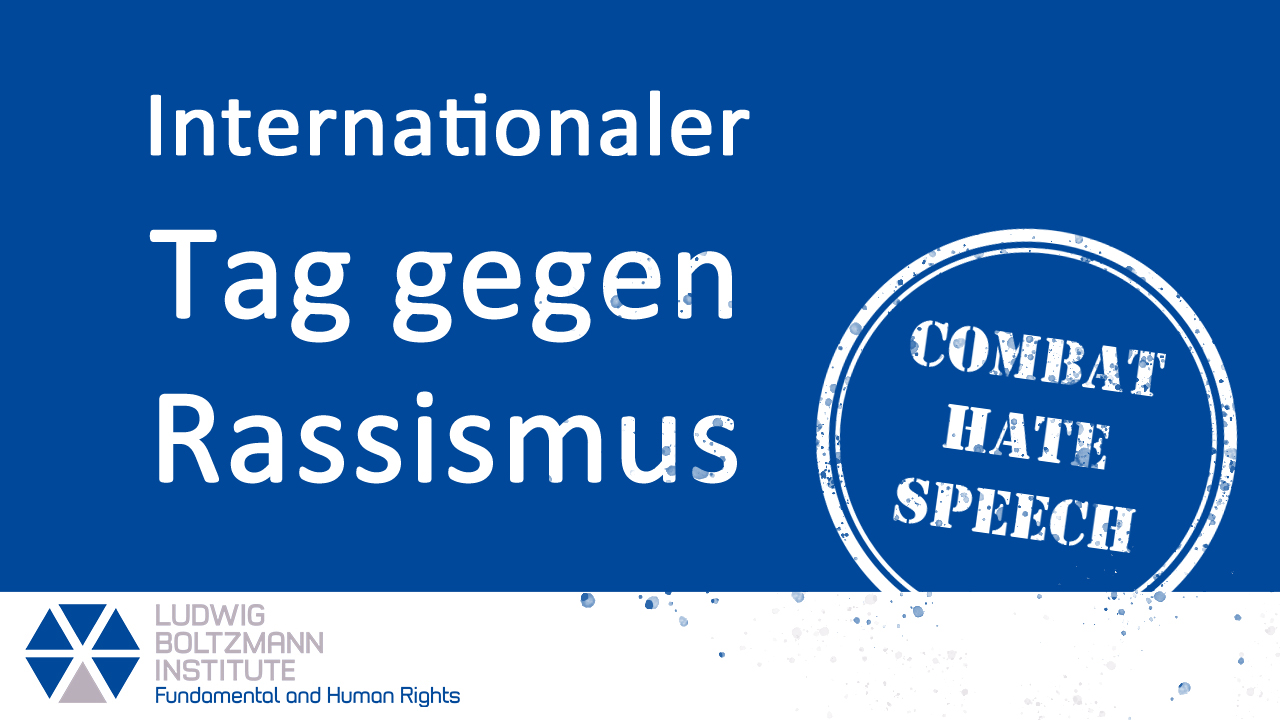21. März: Internationaler Tag gegen Rassismus
The International Day for the Elimination of Racial Discrimination was established by the United Nations in 1966 and commemorates the Sharpeville Massacre in South Africa, where in 1960 police shot at people demonstrating against apartheid and thus against systemic racism.
In 2020, the Black Lives Matter movement motivated an increasing number of people in Austria to reflect on the phenomenon of racism and its systematic embedding in our structures, institutions and society. The embedding of racism becomes evident in the social, economic and political privileges of white people, as well as in their powerful position in our society. One of these privileges is that white people are usually not marked by their skin color and are not perceived as a homogenized group. They do not have to justify their being white, unlike, e.g., people read as Muslim who are – especially in the aftermath of Islamist terrorist attacks – are expected and often pressured to distance themselves from terrorism. White people do not have to consider avoiding certain public places, unlike, e.g., People of Color (PoC) who have to fear racially motivated police stops. Racial discrimination at the individual level is one manifestation of systemic racism. Examples of such manifestations are not inviting a woman who wears a headscarf to a job interview, despite her meeting all job posting criteria, or a demeaning and insulting post that hatefully asks the addressee to return to his or her country of origin.
Online platforms have facilitated constructive and reflective discussions on racism, especially in the context of the Black Lives Matter movement, but at the same time they also provide space for the aforementioned racially motivated hate speech that demeans, excludes, and harms people. Identifying and combating racially motivated hate speech is among the goals of the International Convention on the Elimination of All Forms of Racial Discrimination (ICERD), adopted in 1965, although it does not explicitly mention the term “hate speech”. The UN Committee on the Elimination of Racial Discrimination (CERD) issued General Recommendation No. 35 in 2013, which reconfirmed that ICERD aims at combating hate speech both off- and online.
“The project Counter-Bot: Artificial Intelligence (AI) combating racist hate speech online aims to support the development of AI, which can more accurately detect (illegal) racist hate,” says Barbara Liegl, head of the “(In)Equalities and Non-Discrimination” program line at the Ludwig Boltzmann Institute of Fundamental and Human Rights. “This is quite challenging due to various reasons: An accurate assessment depends on the context in which statements are embedded. Terms such as People of Color can be used in the sense of self-empowerment, but also in a derogatory way. The use of rhetorical devices such as irony or sarcasm makes it harder to identify racist content.”
To effectively counter the widespread phenomenon of hate speech, the longer-term goal is to support the development of AI that can not only recognize racist posts, but also automatically generate counter-speech. Barbara Liegl: “It targets all the silent witnesses of hate speech and makes clear that racist hate speech is not okay. It is also a tool for supporting those directly affected by hate speech in fighting back. A reliable counter-bot could make the Internet a space where there is more sensitivity to racist discrimination and where there is room for people in their diversity.”
